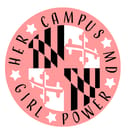Two weeks ago, the midterm elections took place in the U.S. Every member of Congress was up for reelection, 35 seats were up for grabs in the Senate and 36 Gubernatorial spots among other local elections all over the country. Here are the important highlights of the election:
-
Democrats took back the House for the first time since 2009 when Barack Obama was elected to his first term
-
Republicans kept control of the Senate, actually gaining two seats
-
A record-breaking 100 women were elected to serve in the House of Representatives
-
The first two Muslim women were elected to Congress, one being a Somali-American and the other being Palestinian-American
-
The first openly bisexual person was elected to the Senate
-
Two women became the youngest women ever elected to Congress, both 29
-
The first Native American women were both elected to Congress, one being Kansas’ first lesbian elected to Congress as well
-
Tennessee elected their first woman senator
-
The elected governor of Colorado became the nation’s first openly gay governor ever
-
Gov. Larry Hogan of Maryland became the first Republican governor to be re-elected in the state since 1954
Now, how are students at the University of Maryland feeling about it? Some students are excited about the new wave of women coming through. Victoria Hernandez, a public relations and digital media double major is one of them.
“I am happy the way Maryland came out, and all the women who got elected to the state house because I think that we need more female representatives in our congress,” Hernandez said. “Also like a bunch of women got elected in nationally and they are calling it the ‘pink wave,’ and I really hate that phrase, because it emphasizes their gender when it should just be emphasizing their leadership.”
Prior to Election Day, the organization Terps Vote coalition, a nonpartisan student group was able to register nearly 3,000 students to vote. They not only had stood around campus, but also when logging on to the Testudo homepage they created a “Register To Vote!” button. On Election Day UMD had voting locations available on campus for students in STAMP student union and in Ritchie Coliseum.
In Maryland, students are able to register to vote at their colleges and use that as their address for the election. Junior Criminology and Criminal Justice Major Chloe Batsch, an out of state student, saw the push on campus as drastically different to that from back home.
(Stories Beneath the Shell)
“I voted absentee ballot cause I live in Kentucky, and I know a lot of people don’t vote there because they just assume it will go Republican, even living in a city like Louisville people don’t vote because they know the outcome,” Batsch said.
“My state turned out the way I knew it was going to turn out, I know there was a lot of younger people voting, but it wasn’t like the push here on campus. It’s not that big over there, like making people vote and getting them signed up to vote, which I find interesting and a key difference.”
(Maryland Today)
Batsch also liked seeing a change in the demographics of candidates in the elections.
“Nationally I think it’s great that the age went down by almost ten years for Congress,” Batsch said. “I am Republican, but like I see the other side too and I think that it is great that there is more diversity now because I don’t think it should just all be old white men.”
Senior, Zoey Stump, an animal science and biology double major thinking about the big picture as the midterm elections come to a close.
“I think the Republican pickups in the Senate will have key implications for future Supreme Court nominations,” Stump said. “Particularly if Trump is re-elected which, at the current moment, seems likely because the Democrats do not have a strong enough nominee, in my opinion.”
She also expressed concern over how the way identity politics, which is the tendency for people of a particular background, to form political alliances, moving away from traditional party politics are now playing into our elections.
“I think it’s extremely dangerous and offensive to lump people into voting categories based on race, gender, etc. because it undermines freedom of thought in lieu of groupthink,” Stump said.
“I saw several grossly elitist and ignorant tweets by liberal pundits pushing the notion that, because the left’s voting base tends to hold more/higher academic degrees, the left’s opinion is more correct.”
Sophomore, Hannah Wood, an International Relations major was very positive about the results.
“I’m happy about the more diversity in both cases and I feel like that is something regardless of party everyone can celebrate,” Wood said. “…It is not just all one run by one party anymore. There is going to be a balance and there is going to be somebody stopping Trump from doing whatever he wants.”
The Colorado native was pleased with her home state’s results in the midterms.
“So we elected the first openly gay governor, which I am thrilled about, I was so excited and I think that’s just huge and just shows the progress this country is truly making,” Wood said.
This particular election showed that young people are excited to vote and do care about who is running the country. By just giving them a push and helping them figure out the process and answering questions that many are usually nervous to answer, it creates a more civically engaged country.



